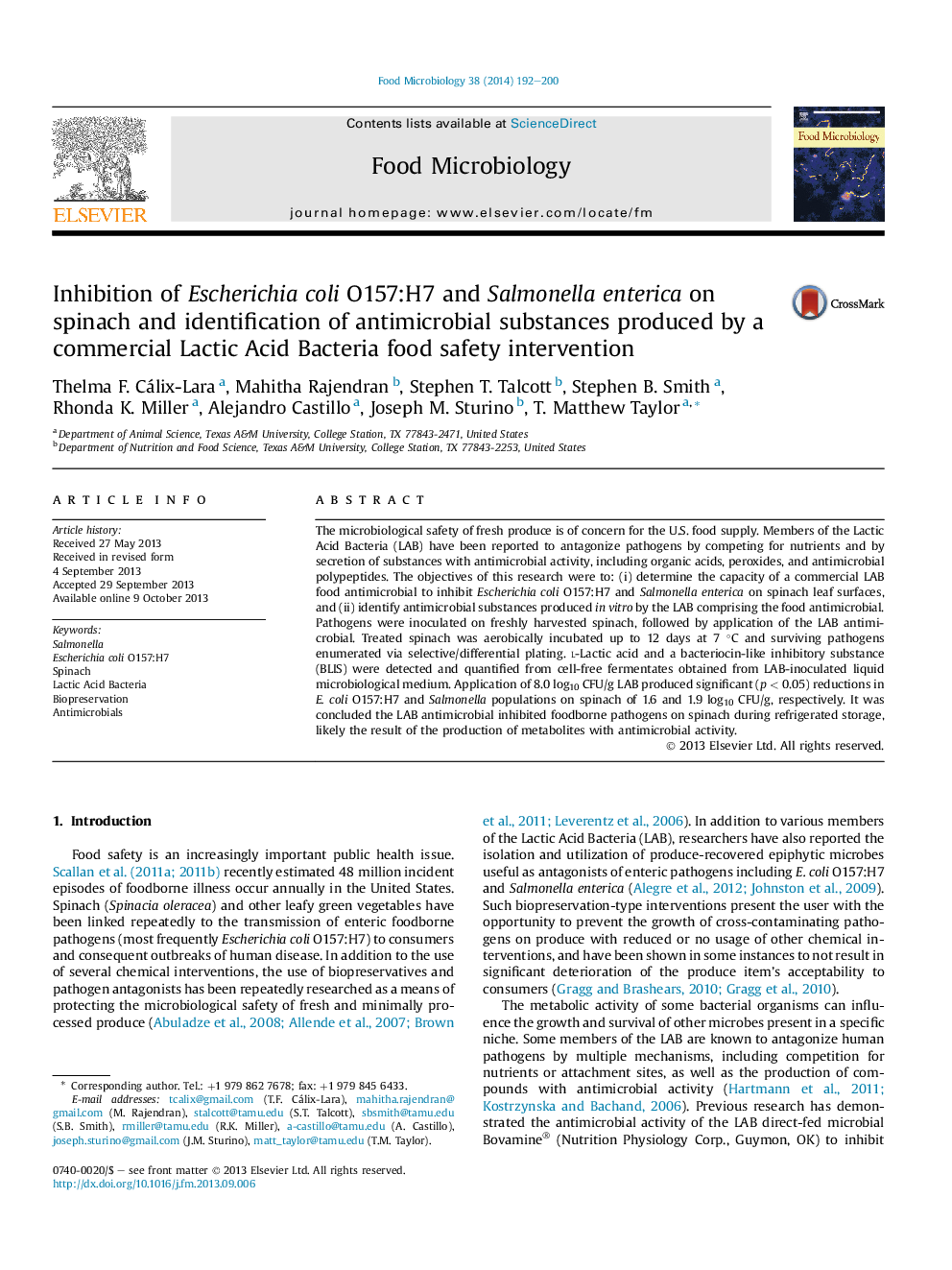| Article ID | Journal | Published Year | Pages | File Type |
|---|---|---|---|---|
| 4362935 | Food Microbiology | 2014 | 9 Pages |
•Lactic Acid Bacteria (LAB) retarded the growth of pathogens on spinach held at 7 °C.•Antimicrobials produced by the LAB were identified and quantified.•l-Lactic acid and bacteriocin-like inhibitory substance were produced by the LAB.•The LAB food antimicrobial can be incorporated as a food safety intervention.
The microbiological safety of fresh produce is of concern for the U.S. food supply. Members of the Lactic Acid Bacteria (LAB) have been reported to antagonize pathogens by competing for nutrients and by secretion of substances with antimicrobial activity, including organic acids, peroxides, and antimicrobial polypeptides. The objectives of this research were to: (i) determine the capacity of a commercial LAB food antimicrobial to inhibit Escherichia coli O157:H7 and Salmonella enterica on spinach leaf surfaces, and (ii) identify antimicrobial substances produced in vitro by the LAB comprising the food antimicrobial. Pathogens were inoculated on freshly harvested spinach, followed by application of the LAB antimicrobial. Treated spinach was aerobically incubated up to 12 days at 7 °C and surviving pathogens enumerated via selective/differential plating. l-Lactic acid and a bacteriocin-like inhibitory substance (BLIS) were detected and quantified from cell-free fermentates obtained from LAB-inoculated liquid microbiological medium. Application of 8.0 log10 CFU/g LAB produced significant (p < 0.05) reductions in E. coli O157:H7 and Salmonella populations on spinach of 1.6 and 1.9 log10 CFU/g, respectively. It was concluded the LAB antimicrobial inhibited foodborne pathogens on spinach during refrigerated storage, likely the result of the production of metabolites with antimicrobial activity.
